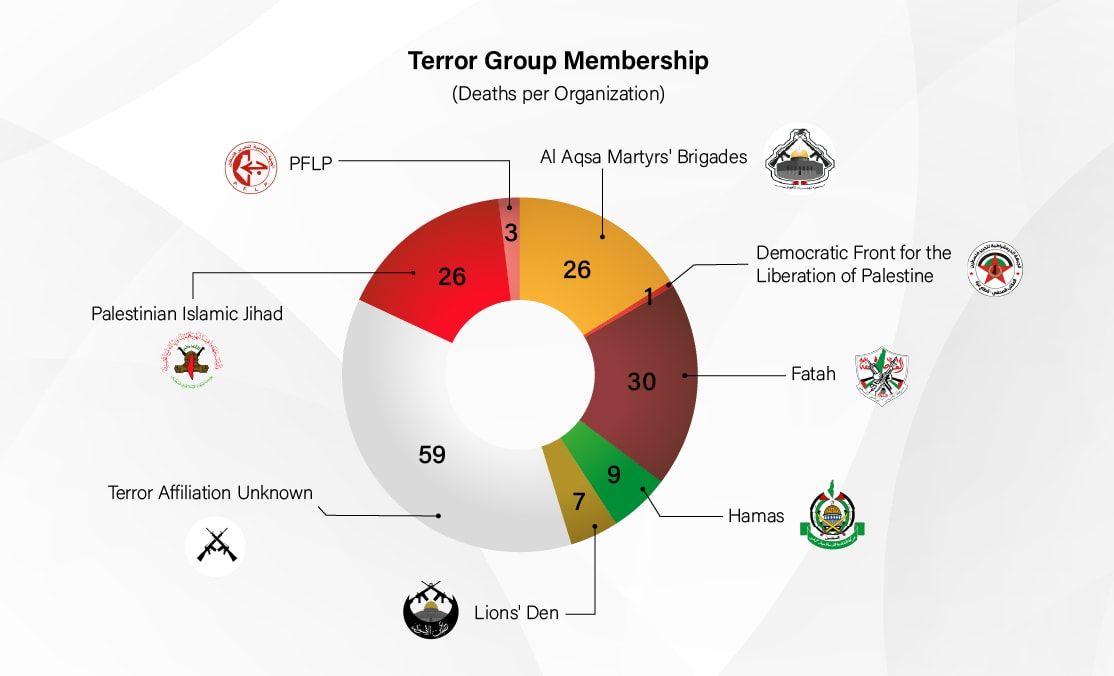In a recent opinion piece for the New York Times, Palestinian American health professional Professor Yara Asi describes a visit to the West Bank city of Nablus in October 2022 to see her extended family.
While describing her personal experiences, Asi also seeks to provide her readers with context for her observations during her trip. However, in doing so, she misleads her readers with contextual inaccuracies, distortions and outright falsifications.
In particular, the three main areas where Asi’s article falls short are:
- Her portrayal of Palestinian deaths during 2022
- Her characterization of the Lions’ Den terror group
- Her disregard for the role played by the Palestinian Authority within the region
Join the fight for Israel’s fair coverage in the news
The ‘Deadliest Year for Palestinians’: Yara Asi’s Whitewashing of Palestinian Violence
Asi writes that her visit to Nablus coincided with “the deadliest month in the deadliest year for Palestinians in the West Bank since 2006: At least 150 have been killed so far in 2022, including more than two dozen children, all as a result of Israeli military violence.”
While it is true that approximately 150 Palestinians have been killed by Israeli security forces over the past year, Asi omits the most vital piece of information: The majority of these Palestinians were killed while perpetrating violence against Israeli soldiers and civilians.
As HonestReporting recently uncovered, 60% of the Palestinians killed by Israel over the past year lost their lives while attacking Israelis and 29% were killed while taking part in violent riots.
— HonestReporting (@HonestReporting) December 29, 2022
In addition, approximately 64% of Palestinians killed by Israel in 2022 were claimed by a wide variety of violent Palestinian groups, including such terror organizations as Hamas, Palestinian Islamic Jihad and the Al-Aqsa Martyrs’ Brigades.

By leaving out this vital information, Asi implicitly suggests that the 150 Palestinians were victims of wanton Israeli state violence as opposed to the reality — that the vast majority of these Palestinians were killed while taking part in violent acts meant to harm or kill Israelis.
Thus, while attempting to tarnish Israel’s name, Asi also whitewashes Palestinian violence and terrorism, diminishing the role that it actively plays in the region.
Related Reading: 2022 the Deadliest Year for Palestinians? What the Media Didn’t Tell You (VIDEO)
In a further example of this, Asi describes how:
The last night before I was scheduled to leave, Israeli military forces raided the old city of Nablus, killing five Palestinians and injuring at least a dozen more. For me, it was a sleepless night, knowing what was happening just minutes away.
Once again, the uninformed reader is left with the impression that while Asi lay in bed, the Israeli military pushed into the heart of Nablus and viciously killed five innocent Palestinians for no apparent reason other than malice.
However, based on a link embedded inside her article, it becomes clear that the Israeli military raid that Asi is referring to was a targeted operation against the Lions’ Den terror group.
During the raid on a Lions’ Den bomb factory in the old city of Nablus, the Israeli military killed one of the terror group’s leaders while also killing four other gunmen.
Thus, the “five Palestinians” who were killed during Asi’s sleepless night were all members of a Palestinian terror group responsible for the escalating violence in the region.
Related Reading: The Terror Triangle: What You Need to Know About the West Bank City of Nablus
Resistance or Terror?: Yara Asi’s Report on the Lions’ Den
While Yara Asi was in Nablus, she describes how the city was placed under a “blockade” by the Israeli military “in an effort to quell the Lion’s Den, a newly formed Palestinian armed resistance group based there.” She also refers to the blockade as a “siege” — inflammatory terminology deliberately employed to distort legitimate Israeli counter-terror measure.
Furthermore, she describes how the Lions’ Den “has claimed responsibility for several shooting attacks on Israeli soldiers” and that it has arisen out of Palestinian despair and hopelessness.
While seemingly portraying the Lions’ Den as a legitimate resistance organization that focuses its attacks on the Israeli military, Asi omits key pieces of information in order to mask the true nature of the group: It is a terror organization that has targeted Israeli soldiers and civilians in both Israel and the disputed territories.
Referring to Israel's temporary lockdown of Nablus as a "siege" is a deliberately inflammatory description designed to distort legitimate Israeli counter-terror measures. See here for more on why Nablus is part of the "Triangle of Terror." https://t.co/Ew6yrkNyrV
— HonestReporting (@HonestReporting) December 29, 2022
Although it is a fairly new organization, the Lions’ Den has been responsible for a number of high-profile attacks against Israelis in 2022, including two shooting attacks against the Jewish community of Har Bracha on September 22 and 23, two shooting attacks on October 2 that left two Israelis injured (one against an Israeli taxi and bus and one against local Israelis who were protesting the rise in regional violence) as well as a shooting attack on October 12 that killed an Israeli soldier who was guarding Israeli civilians at a demonstration.
Yossi Dagan, the President of the Shomron Regional Council, was at the scene of the terror attack that took place earlier this evening. The local Shechem terror group, “Lion’s Den” took responsibility. The terrorist are yet to be caught. pic.twitter.com/CQx7Ir9Pov
— Chaim • חיים (@ChaimSmierc) October 2, 2022
In addition, in early September, Israeli forces caught a Lions’ Den operative attempting an attack in Tel Aviv while later that month, Lions’ Den terrorists were caught planting a bomb at a gas station near the Jewish community of Kedumim.
Thus, while Asi seemingly downplays the nature of the Lions’ Den and portrays the IDF cordon around Nablus as cruel and unnecessary, the reality is that while disruptive to life in Nablus, an Israeli lockdown was necessary to stymie the activities of a group hellbent on harming innocent Israeli civilians and active Israeli soldiers alike.
Related Reading: Into the Lions’ Den: Why Israel Carried Out a Counterterrorism Raid in Nablus (VIDEO)
Blaming Israel, Ignoring the Palestinian Authority
Throughout her piece, Yara Asi seemingly places all the woes of Nablus at the feet of Israel, blaming the Jewish state for all the travails of the local Palestinian population.
In particular, Asi claims that the Palestinians of Nablus were subject to the whims of the “Israeli government, an entity that Palestinians have no power to elect and that has no accountability to them.”
While it is true that the Palestinians of Nablus don’t vote for the Israeli government, this is because Nablus falls under the jurisdiction of the Palestinian Authority (PA).
However, when the PA fails to meet its responsibilities and cannot (or chooses not to) control the terror groups that exist within its territory, it is incumbent upon the Israeli government to take action in order to protect its citizens.
Thus, by holding Israel solely responsible for the plight of the residents of Nablus while diminishing the influence of the PA and local Palestinian terror groups, Asi fails to provide her readers with the necessary context.
That the New York Times gave her a platform to do so comes as no surprise.
Liked this article? Follow HonestReporting on Twitter, Facebook, Instagram and TikTok to see even more posts and videos debunking news bias and smears, as well as other content explaining what’s really going on in Israel and the region.


